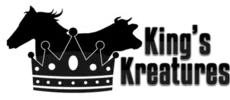Breeding horses is a complicated topic, but this quick overview will provide you with enough information to talk with a breeder or your veterinarian about breeding your horse. Role of the Stallion A stallion is a male horse that has not been castrated. The stallion’s role in breeding is to provide
Read more-
Breeding
Category: Equine, Choosing Your Pet, Horses
-
Barns to Pastureland
Category: Equine, Living With Your Pet, Bringing Your Pet Home
If you are to get the best from your horse, it is vital that you provide him with a happy, comfortable and safe home environment. This applies whether he is kept in a horse barn or in a field. As a general rule, a particularly fine-coated horse, or one that is in hard work, needs to be stabled during
Read more -
Bacterial Infections
Category: Equine, Pet Health, Chronic Conditions
There are many types of bacterial infections that can affect your horse. If you notice symptoms of any of the following common types of bacterial infections, contact us, so we can examine your horse and provide appropriate treatment options. Anthrax is a bacterium that forms spores, which allows it to
Read more -
Aural (Ear) Conditions
Category: Equine, Pet Health, Chronic Conditions
If you’ve ever marveled at the responsiveness of your horse’s ears — the way they prick up for tiny sounds or flatten when it feels in danger — you realize how important these structures are for processing information and communication. Without good hearing, your horse will miss your vocal cues. Horse
Read more -
Arthritis and Degenerative Joint Disease
Category: Equine, Pet Health, Diseases and Viruses
Arthritis has several names — degenerative joint disease, osteoarthritis — but, whatever you call it, your horse has stiff and painful joints. This common chronic condition often affects older horses, as the cartilage around their joints deteriorates, especially around their knees, coffins, fetlocks,
Read more -
Anhidrosis
Category: Equine, Pet Health, Chronic Conditions
Horses with anhidrosis lack the ability to sweat. Sometimes, they start out capable of this normal bodily function, and then suddenly lose it. Horses of all breeds, ages, colors and genders are at risk. Also called drycoats or puffers, victims of anhidrosis are most often active horses who live in hot,
Read more -
Angular Limb Deformities
Category: Equine, Pet Health, Orthopedics
Many young foals have crooked hind or front legs. Lax ligaments and weak muscles usually cause this discrepancy between legs, which is often self-correcting as the horse grows. However, this deviation makes the young horses more likely to crush the cuboidal bones during exercise. If this happens, once
Read more -
Abscesses and Cysts
Category: Equine, Pet Health, Chronic Conditions
Cysts and abscesses can both form lumps on a horse’s body. However, they stem from different causes. Infections cause abscesses, which are full of pus that accumulates under the skin. Cysts are typically present from birth or form during a horse’s development. In some cases, a veterinarian will recommend
Read more
Newsletter Signup
Sign up for more articles
Areas Serviced
Office Hours
9:00 am - 5:00 pm
9:00 am - 5:00 pm
9:00 am - 5:00 pm
9:00 am - 5:00 pm
9:00 am - 5:00 pm
Closed
Closed
